10 Questions to Ask During an Interview With an Avionics Bench Technician
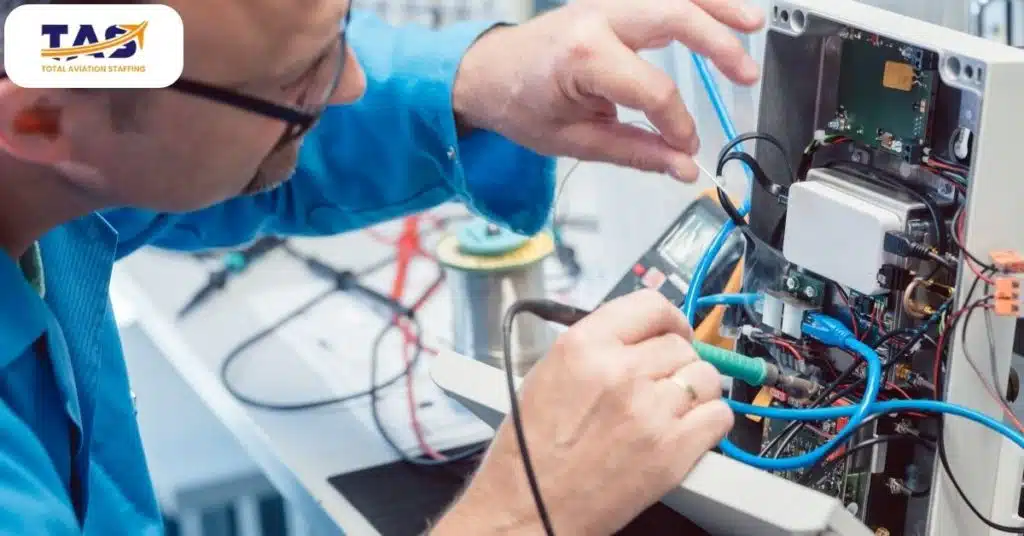
Are you looking to hire an experienced Avionics Bench Technician? This important position involves working with electronics and technology systems on aircraft. To find the best candidate, it’s important to ask the right questions during the interview process. Here are 10 questions to consider asking potential Avionics Bench Technicians.
1.Experience Do You Have Working With and Troubleshooting Avionics Systems
With aviation being such a complex field, avionics bench technicians are critical for carrying out essential maintenance to aviation systems and ensuring that they remain in working order. When interviewing an avionics technician, it is important to ask about their experience troubleshooting and servicing aviation systems as this will give an indication of how versed they are in the industry. Asking about their experience working with various makes and models of aviation equipment can also help gauge whether the candidate has the necessary skills, knowledge and insight to efficiently work on aircraft systems. Furthermore, asking questions that reveal the individual’s attitude towards safety and quality control processes can provide valuable insight into how experienced they really are. Overall, these questions should be asked when interviewing an avionics bench technician to gain a better understanding of their qualifications.
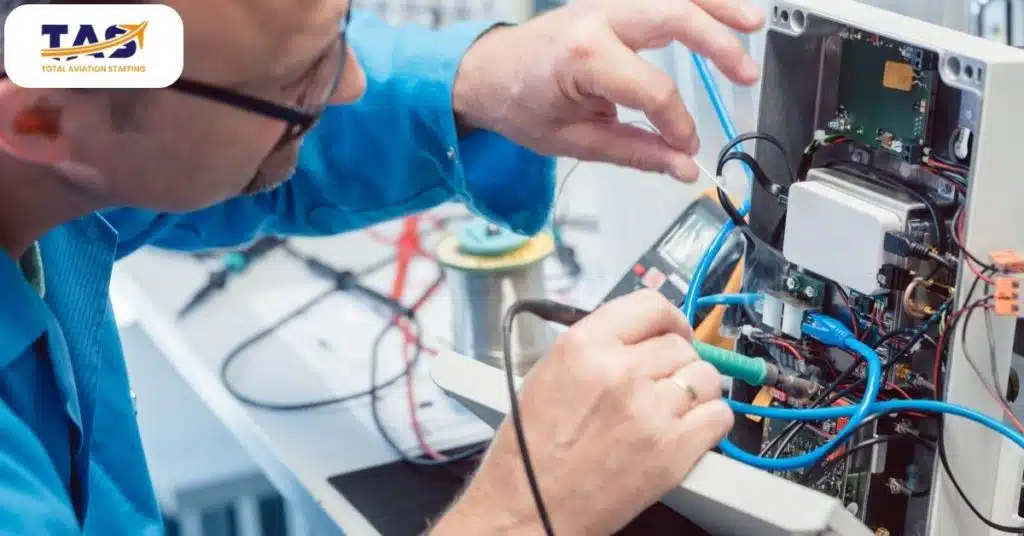
2. Describe a Recent Job in Which You Had to Diagnose an Issue With an Avionics System
When speaking to an aviation avionics technician candidate, one should set aside time to ask questions about their most recent job involving troubleshooting an aviation system. Such an undertaking requires considerable aviation expertise and technical skill, so it would be essential to learn what unique elements the candidate contributed to the process. What was their approach to solving the problem? How quickly were they able to identify the underlying cause? Questions such as these can give hiring managers invaluable insight into whether a candidate has the right qualifications and mindset for succeeding in a given aviation role.
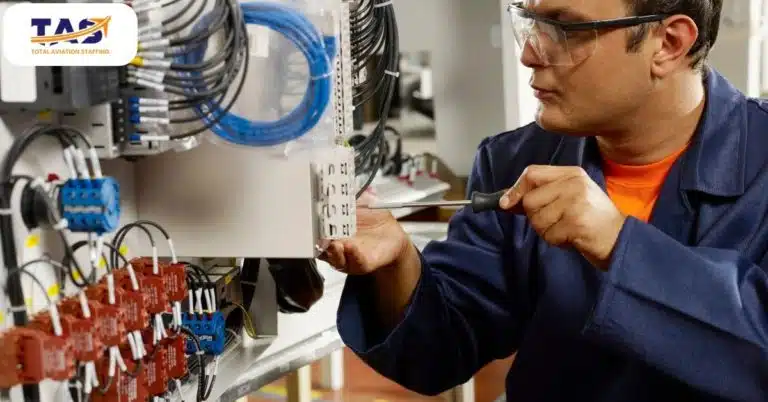
3. Challenges Have You Faced While Maintaining and Repairing These Systems
Avionics bench technicians are responsible for maintaining and repairing aviation systems, so they are required to be highly skilled and experienced. During an interview with an avionics bench technician, it’s important to ask them questions related to their experience in this field. For example, it would be beneficial to inquire about the different challenges they have faced while maintaining and repairing aviation systems. This would provide insights on their ability to solve complex problems in a timely manner, as well as ensure that the aviation systems remain functioning properly for safety purposes. Asking about any challenges they have faced not only highlights a candidate’s technical acumen but also gives you an indication of how resourceful they are when confronted with unexpected issues.
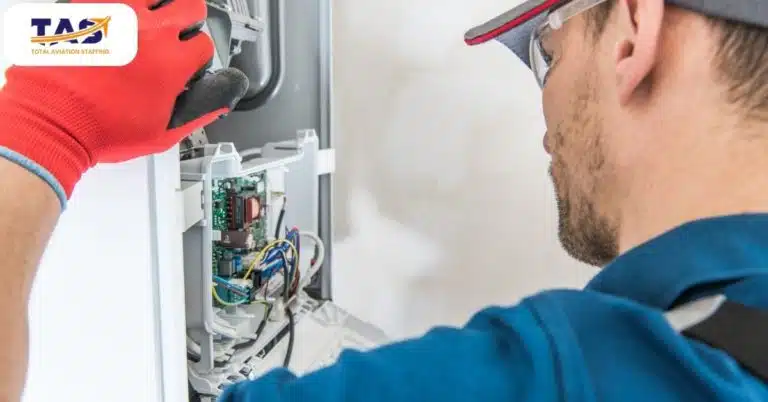
4. How Comfortable Are You When It Comes to Interpreting Schematics and Diagrams
When interviewing potential aviation avionics bench technicians, an important question to include is how comfortable the technician is when it comes to interpreting schematics and diagrams. Understanding complex aviation systems requires a thorough knowledge of wiring schematics, aviation electrical components, aviation interconnect diagrams as well as parts replacement procedures. An experienced technician should be able to explain diagrams quickly and accurately in order to check system functionality or identify malfunctions. Additionally, they must be able to fully comprehend technical publications like maintenance manuals and service bulletins. Asking this key question during an interview will ensure your candidates have the necessary knowledge for the job. When interviewing potential aviation avionics bench technicians, an important question to include is how comfortable the technician is when it comes to interpreting schematics and diagrams. Understanding complex aviation systems requires a thorough knowledge of wiring schematics, aviation electrical components, aviation interconnect diagrams as well as parts replacement procedures. An experienced technician should be able to explain diagrams quickly and accurately in order to check system functionality or identify malfunctions. Additionally, they must be able to fully comprehend technical publications like maintenance manuals and service bulletins. Asking this key question during an interview will ensure your candidates have the necessary knowledge for the job.
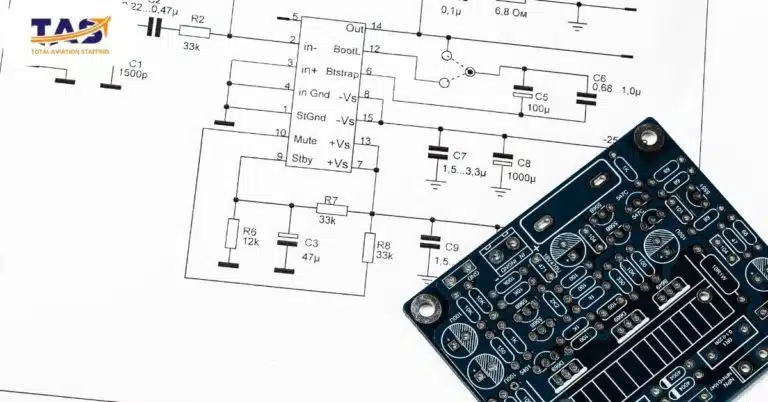
5. Techniques Do You Use to Diagnose and Repair Avionics Systems
Apart from understanding schematics and diagrams, avionics technicians must also be able to diagnose and repair aviation systems. As such, it’s important to ask candidates about the techniques they use for doing this. This can include information about how they troubleshoot problems, identify potential components that need replacement or upgrade, as well as their familiarity with testing procedures. It would be beneficial to ask whether they have had any experience with the latest systems and technologies in aviation. This will help you determine if the technician is able and willing to keep up with changing trends and industry standards. A good answer should show that the avionics bench technician has an understanding of the latest developments and can apply them to their work. This can include information about how they troubleshoot problems, identify potential components that need replacement or upgrade, as well as their familiarity with testing procedures. This will help you determine if the technician is able and willing to keep up with changing trends and industry standards. A good answer should show that the avionics bench technician has an understanding of the latest developments and can apply them to their work. By asking this question during the interview, you can get an idea of how familiar they are with the latest technology and if they have the necessary skills to safely complete repairs and maintenance on avionics systems.
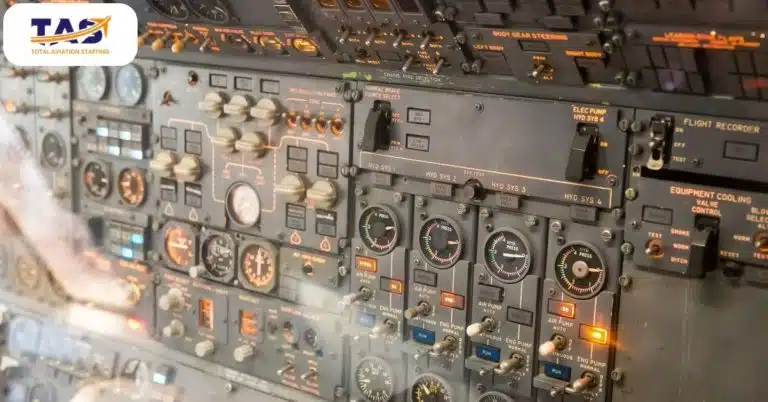
6. How Familiar Are You With the Technical Specifications for Aircrafts and Their Avionics Components
When interviewing an Avionics Bench Technician, it is important to ascertain their level of familiarity with aviation technology and the technical specifications for aircraft and their avionics components. Understanding a candidate’s extensive aviation background and intricate knowledge in the aviation industry through working experience, as well as educational qualifications, will help make an informed decision about whether they possess the necessary skills to fulfill the demands of the position. It is essential for an Avionics Bench Technician to have a good understanding of aviation engineering, aviation operations, aviation laws, maintenance activities, flying regulations, airworthiness requirements and other critical aviation topics. Asking questions throughout the interview that focus on these topics will ensure that only appropriately qualified candidates are chosen as successful Avionics Bench Technicians.
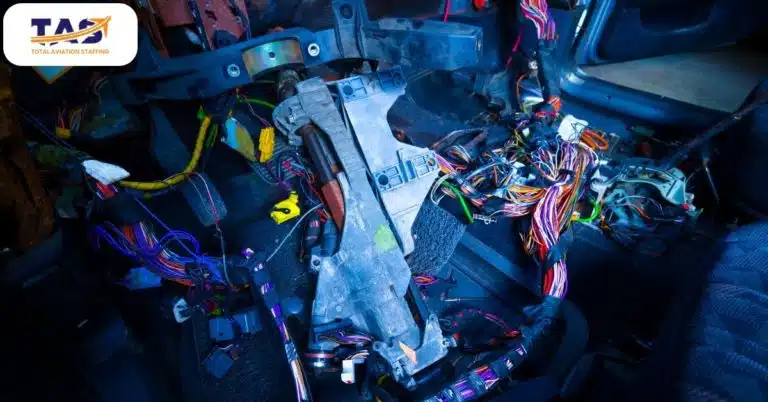
7. Are You Comfortable Using Diagnostic Tools Such as Oscilloscopes, Spectrum Analyzers and Signal Generators
When hiring an avionics bench technician, it’s essential to ask the right questions. Of particular importance is understanding how comfortable the technician is with using diagnostic tools such as oscilloscopes, signal generators and spectrum analyzers; with aviation being a heavily regulated industry these tools need to be employed in order to accurately diagnose and repair problems. Knowing how familiar an applicant is with such tools can either make or break their candidacy for the job. Therefore it is recommended that employers ask about specific knowledge of and experience using these devices during the interview process. Asking about their general knowledge of the functionality of these devices, understanding on how to interpret readings, and experience using them in a practical setting can help employers discern who would be best suited for the job. Furthermore this also gives candidates an opportunity to explain what they know and how they may be able to use such equipment as part of their duties.
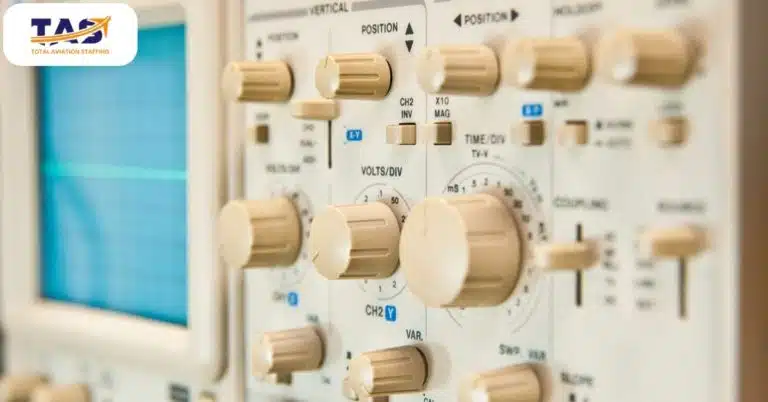
8. Describe How You Would Approach Troubleshooting a Complex Issue With an Avionics System
Avionics systems are essential air-craft components and as such require delicate handling and regular maintenance. As an avionics bench technician, it is important to understand how complex these systems can be, and have the skills and knowledge required to troubleshoot any issues that may arise. When interviewing a candidate for the position of an Avionic Bench Technician, it is important to understand their troubleshooting process and how they would approach resolving a complex issue. A good answer should show that the technician has a methodical approach to problem solving with experience in both investigating and diagnosing avionic systems, as well as being able to provide timely solutions. The technician should also be able to explain the steps involved in troubleshooting a complex issue, as well as their experience in rectifying any malfunctions. The technician should also be able to demonstrate sound decision-making skills and the ability to use logical problem solving techniques when evaluating an issue with an avionics system. These skills are essential for any professional working within the aviation industry, and can help ensure that Avionic Bench Technicians are suitably qualified and experienced in their role.
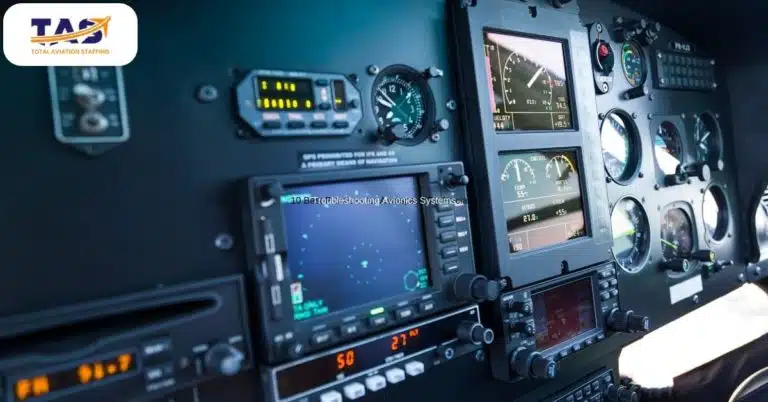
9. How Do You Stay Up-To-Date With the Newest Avionics Technologies
As technology advances and new avionics systems are developed, it is essential for Avionic Bench Technicians to stay up-to-date with the newest technologies in order to effectively diagnose and repair these aircraft components. Employers should therefore ask potential technicians how they keep their knowledge and skills current with the latest avionics technologies. The ideal candidate should be able to demonstrate how they remain informed of new developments in the industry, as well as any specific certifications or courses that may have been taken to keep abreast of current trends and technologies. Additionally, it is important for technicians to understand aircraft performance data, operational restrictions and other related material; employers should therefore inquire about the technician’s familiarity with any such information. Employers should also ask about the resources and methods used by the technician to remain current in their knowledge and skills, as well as whether they have experience or interest in researching new avionics concepts or technologies. This will help employers determine if a candidate is sufficiently qualified for the job and able to provide the best possible service to customers.

10. What Would You Say Sets You Apart From Other Avionics Bench Technicians
Although the role of an Avionic Bench Technician requires specific knowledge and skills, employers should also look for qualities that set a candidate apart from their peers. The ideal technician should have not only technical experience but also the personal attributes necessary to excel in the field. When asked what sets them apart as an Avionic Bench Technician, applicants should be able to demonstrate qualities such as problem-solving abilities, attention to detail, communication skills and the ability to work in a team environment. Additionally, technicians should be able to show that they are customer focused and understand how their role is integral for the safety of passengers in an aircraft. It is also important for employers to assess a candidate’s commitment to their work and the aviation industry as a whole. Demonstrating how they have kept up with current trends in avionics technology and that they have an eagerness to learn more is important for employers looking to hire the best technicians available.
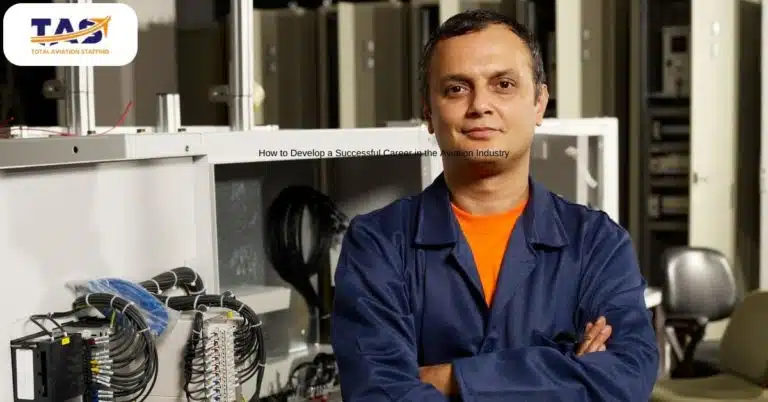
In conclusion
Avionic Bench Technicians perform an essential role in the aviation industry. Employers should take time to assess a candidate’s knowledge and experience with avionics systems as well as their customer service skills and ability to stay up-to-date on current trends in technology. By assessing these qualities employers can find the best qualified technicians for the job, ensuring that passengers remain safe when flying in aircraft with avionics systems.
